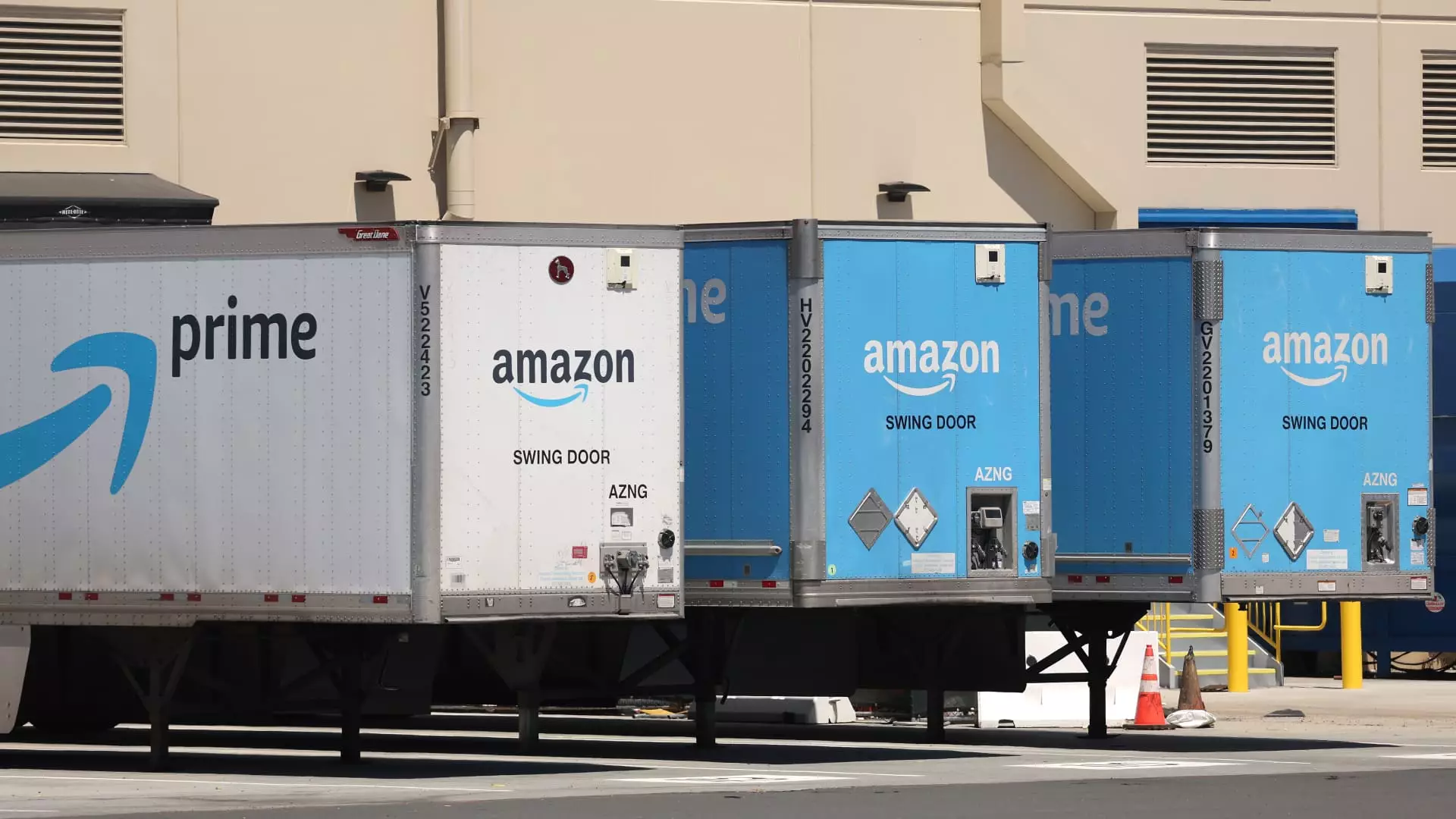In a bold and revealing crackdown, the U.S. Department of Justice (DOJ) has filed charges against members of an Armenian organized crime syndicate implicated in a massive cargo theft scheme, which allegedly siphoned off more than $83 million in goods intended for Amazon’s expansive network. The sheer scale and audacity of this operation, which operated under the guise of legitimate freight transport, demonstrate the evolving and increasingly sophisticated tactics that organized crime is willing to employ to exploit vulnerabilities in major corporations.
Since 2021, it appears that these criminals have meticulously orchestrated a network across California, deftly navigating the logistics landscape to pilfer everything from smart TVs to popular kitchen appliances like SharkNinja air fryers. The DOJ complaint highlights the systemic failures that allowed such a brazen operation to flourish. It’s an alarming reminder of the challenges retail giants face in safeguarding their supply chains amidst the growing threat of organized theft.
The Dark Side of E-commerce
Beyond Amazon, cargo theft is a widespread issue wreaking havoc on retailers nationwide, with losses estimated to eclipse $1 billion annually. This included theft that has damaging repercussions for many legitimate businesses struggling to remain competitive. Interestingly, many of these retailers are entwined in a grey area; suppliers and third-party sellers allege their involvement often stems from a lack of awareness, putting their livelihoods at risk. This raises a troubling ethical question: how much responsibility lies with the ‘innocent’ sellers caught in a web of deceit and theft?
The current climate necessitates robust tracking and policing mechanisms to combat these crimes effectively. The DOJ’s efforts to collaborate with Amazon, which expanded its surveillance and response initiatives, unveil a proactive approach to catching miscreants while protecting the integrity of the company’s business. However, how effective these measures can be remains a contentious topic among industry experts who argue that the detection and prevention of such schemes require a continual reinvention of tactics given the ever-evolving nature of criminal operations.
The Mechanics Behind the Operation
Allegedly, the crime ring utilized the Amazon Relay app to secure freight routes, with multiple transport carriers including AK Transportation, NBA Holdings, Belman Transport, and Markos Transportation operating under the pretense of legitimacy. Once assigned a load, instead of adhering to designated routes, these individuals would divert, pilfer valuable goods, then resell or distribute the items, essentially circumventing the delivery system created for efficient e-commerce.
Reports indicate that some deliveries were fatally delayed, often completing scheduled drops days past their expected arrival. The extent of the operation was highlighted when DOJ officials discovered evidence, including photographs of warehouses packed with an array of stolen merchandise, from crockpots to Weber grills. The overwhelming quantity of goods displayed how paramount this scheme had become and how it thrived on the inadequacies in existing security protocols.
Broader Implications of Organized Crime
The implications of this case stretch far beyond just cargo theft. As DOJ officials have linked some defendants to other grave offenses such as attempted murder and illegal firearm possession, it sheds light on the violent undercurrents that often accompany organized crime initiatives. This is particularly critical for policymakers and regulators tasked with addressing not just theft, but the underlying social issues that lead such individuals into crime.
The patterns of behavior associated with criminal organizations often include a multifaceted approach to crime that intertwines various sectors—unmasking a complex tapestry that demands a comprehensive response from law enforcement and community initiatives aimed at preventive measures.
No single e-commerce entity can operate in a vacuum, and this incident serves as a wake-up call for Amazon and others in the industry to rethink not just their logistics frameworks, but their overall approach to security and ethics in business. The struggle against organized crime grows ever more critical, and vigilance is required to safeguard the integrity of commerce against such corrupt forces that threaten its very foundation.


Leave a Reply